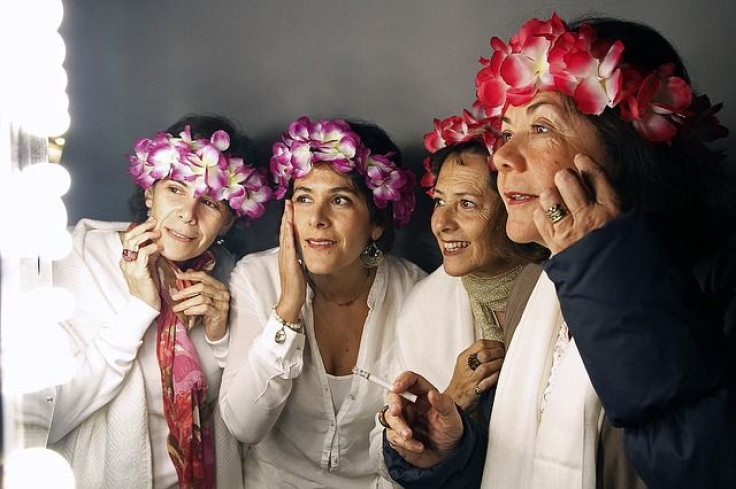Does Your Birth Name Shape Your Face? Physical Appearance May Conform To Social Expectations

In our mind, when we hear the name "uncle Bob," we think about that one uncle who has a round face; is opinionated; and always drinks a bit too much. This strange notion that people who share a name also share a specific look them is not mere coincidence. A study published in the Journal of Personality and Social Psychology has found that a birth name may influence our physical appearance over time, and possibly personality traits via cultural stereotypes and social expectations.
"Prior research has shown there are cultural stereotypes attached to names, including how someone should look," said Yonat Zwebner, lead study author, and a PhD candidate at The Hebrew University of Jerusalem at the time of the research, in a statement.
Read More: Choose The Right Baby Name To Make Your Child A Success
This phenomenon has been dubbed the " Dorian Gray effect" based on Oscar Wilde's novel, "The Picture of Dorian Gray." The male protagonist, Dorian, gives his soul to remain young while a painting of him grows old. Although his appearance remains youthful, his portraits age based on his degenerate deeds, eventually turning into a hideous mask. Similarly, Zwebner hypothesizes that a face may come to match its name due to people subconsciously altering their appearance to adhere to cultural norms and cues related to their name.
To investigate this face-name matching effect, Zwebner and her colleagues conducted a series of experiments involving hundreds of participants in Israel and France. In each experiment, participants were shown a photograph and asked to select the given name that corresponded to the face from a list of four or five names. In every experiment, participants were significantly better, specifically 25 to 40 percent accurate, at matching the name to the face than random chance — 20 to 25 percent, depending on the experiment — even when the researchers accounted for ethnicity, age, and other socioeconomic variables.
In one experiment, students in both France and Israel were given a mix of French and Israeli faces and names. The French students were better than random chance at matching only French names and faces, while Israeli students were better at matching only Hebrew names and Israeli faces. For example, Israelis were clueless about what a “Pierre” looked like, and the French could not place Israeli names to faces.
These results suggest this effect is culture-specific.
To test this hypothesis with a computer, researchers trained a computer, via a learned algorithm, to match names to faces. Over 94,000 facial images were included; the computer was significantly more likely, 54 to 64 percent, to be successful than random chance (50 percent accuracy). The algorithm was able to determine people with the same name tend to have similarities around their eyes or at the corners of their mouths.
"We are familiar with such a process from other stereotypes, like ethnicity and gender where sometimes the stereotypical expectations of others affect who we become," said Zwebner.
Read More: What Does Your League Of Legends Username Say About Your Personality?
Our facial appearance represents social expectations of how a person with a particular name should look, which influences our physical appearance. Our name could influence how we style our hair based on the cultural stereotypes linked to a specific name. It seems our gender, ethnicity and socioeconomic status, and even our birth name are what socially structures us.
Our facial appearance reflects social expectations of how a person with our name should look. This may also imply we mold our names to fit us.
So what's in a name? A lot.
Source: Zwebner Y, Rosenfeld N, Sellier AL et al. We Look Like Our Names: The Manifestation of Name Stereotypes in Facial Appearance. Journal of Personality and Social Psychology. 2017.
See Also:
You Can Judge 90 Percent of a Stranger's Personal Characteristics Just by Looking at Their Shoes



























